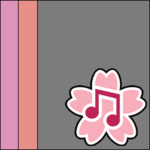
I will start by defining what an adjective is in terms of general grammar, then ease into how they are used in Japanese.
The concept of an adjective is very simple compared to nouns and copulas:
An adjective is a word that modifies a noun in order to further describe it.
Examples include:
sweet fruit
quiet town
beautiful woman
These descriptive words can range from traits like size, scent, color, personality, speed, appearance, and more. They reveal the condition of the noun to create a more vivid image of it.
Now that we’re done with the generic explanation of adjectives in general, we can move on to how adjectives are specifically used in Japanese!
The main purpose of this page is mainly to warn you that Japanese has 2 main types of adjectives. (There are actually other types of adjectives (such as “no” adjectives), but we won’t talk about them until much later.) After I introduce both main types, we will branch out between them over the next 2 pages.
They are known as na-adjectives (“na” as in the hiragana “な”) and i-adjectives (“i” as in the hiragana “い”). Each type has its own proper usage and conjugation rules.
To start, on Learn JP Lyrics, we color adjectives pink or red. Why? Because nouns usually have a red na-adjective in front of it or a pink i-adjective in front of it. This is the beginning of a rainbow. Many Japanese sentences start with a noun or a noun being modified by an adjective or verb!

I won’t bother labeling individual nouns as being proper or common, it just takes up too much room and is kind of obvious which is which (specific label vs unspecific label). And in online dictionaries, both common and proper nouns are simply labeled as “(n)” for “noun”. I think just being able to tell what is a noun versus something like an adjective or verb at first glance is the most important thing.
So, most nouns on Learn JP Lyrics will be labeled simply as NOUN, like this:
On the next page, we will cover na-adjectives first, because they are used pretty similar to nouns. After that page, we will learn about i-adjectives.